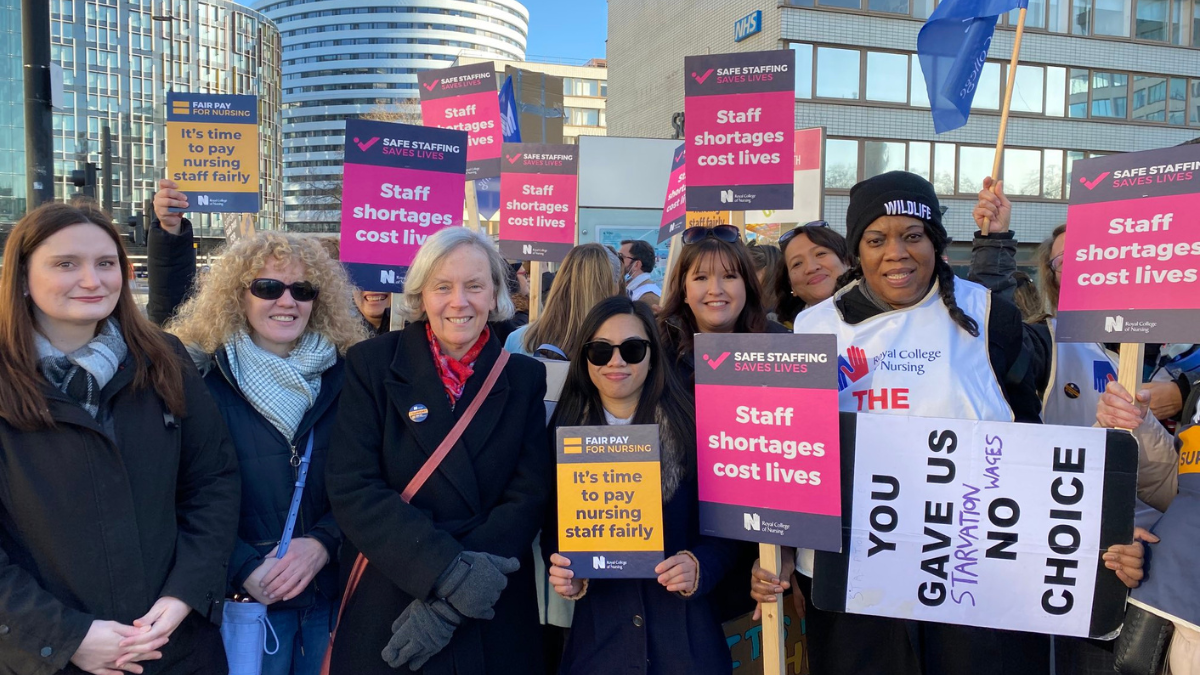Norfolk MP Battles NHS In Landmark Gender Case

Table of Contents
The MP's Claims and Arguments
The Norfolk MP's legal action against the NHS centers on allegations of systemic failings within the provision of gender-affirming care. The MP claims to have experienced significant delays and discriminatory practices in accessing necessary medical interventions. These claims represent a significant challenge to the NHS's current approach to transgender healthcare.
- Allegations of discrimination and unfair treatment: The MP alleges that they faced prejudice and bias within the NHS system, leading to unnecessary delays and a lack of appropriate support. This includes accusations of misgendering and a failure to acknowledge their gender identity.
- Delays in accessing necessary medical interventions: The lawsuit highlights significant delays in accessing hormone replacement therapy (HRT) and gender-affirming surgery, causing significant distress and impacting the MP's mental and physical well-being. These delays are alleged to be significantly longer than the waiting times for comparable procedures for cisgender individuals.
- Lack of appropriate support and resources: The MP argues that the NHS failed to provide adequate psychological support and resources during their transition, exacerbating the difficulties they faced. This lack of support is cited as a key factor contributing to the overall negative experience.
- Potential violation of human rights legislation: The legal action contends that the NHS's actions constitute a violation of the MP's human rights, specifically under the Equality Act 2010 and the European Convention on Human Rights, which protect against discrimination on the grounds of gender reassignment.
The MP's legal team has presented evidence, including medical records and correspondence with NHS staff, to support their claims. While specific details remain confidential due to ongoing legal proceedings, the case highlights the urgent need for improved access to gender-affirming care.
The NHS's Response and Defence
The NHS has responded to the MP's claims, defending its policies and procedures concerning gender-affirming care. The response focuses on several key arguments.
- Justification of their policies and procedures: The NHS maintains that its policies and procedures are designed to ensure patient safety and the appropriate allocation of resources. They emphasize a multidisciplinary approach to gender-affirming care, involving various medical professionals.
- Emphasis on safety protocols and resource allocation: The NHS highlights the complexities of gender-affirming care and the need for robust safety protocols to protect patients. They argue that resource allocation decisions are made based on clinical need and overall service demands.
- Arguments against accusations of discrimination: The NHS denies any allegations of discrimination and maintains that all patients are treated fairly, regardless of gender identity. They assert that any delays experienced by the MP are due to factors such as resource constraints and waiting lists, and not discriminatory practices.
- Legal arguments in defense of their actions: The NHS's legal team will present arguments to refute the MP’s claims of human rights violations. Their defense will likely focus on demonstrating that their policies and practices adhere to legal requirements.
Public Opinion and Wider Implications
This landmark case has sparked significant public debate, with media coverage widely disseminating differing opinions. Public reaction to the Norfolk MP's legal challenge is varied and reflects the complex and often highly polarized nature of discussions surrounding transgender rights.
- Analysis of public opinion polls or surveys (if available): While specific data on public opinion regarding this case might not yet be available, broader surveys on transgender rights and healthcare access can provide valuable context.
- Diverse viewpoints from different sectors of society: The case has highlighted the diverse viewpoints on transgender rights, with opinions varying across political parties, religious groups, and the general public. The debate often involves discussions of ethical considerations, resource allocation, and the definition of gender itself.
- Impact on the wider debate on transgender rights: The case is likely to fuel the wider national conversation on transgender rights, particularly the access to healthcare and the extent to which legal frameworks currently adequately protect the rights of transgender individuals.
- Potential implications for NHS policies across the country: The outcome of this case could significantly influence NHS policies on gender-affirming care across the country, potentially leading to improvements or changes in service provision.
The Role of Media and Public Awareness
The media's portrayal of the case has been significant in shaping public awareness and influencing the ongoing debate. While some outlets have provided balanced reporting, others have been criticized for presenting biased or potentially inaccurate information, contributing to misinformation and further polarizing the discussion. Responsible and accurate reporting is crucial to ensure the public can make informed judgments on this complex issue. Media coverage is impacting public perception of both the MP and the NHS, highlighting the crucial role of impartial journalism in this context.
Conclusion
This landmark gender case pits a Norfolk MP against the NHS, highlighting critical issues surrounding access to gender-affirming healthcare and the need for equality within the NHS. The MP's claims of discrimination and inadequate care are countered by the NHS's arguments about resource allocation and safety protocols. The ensuing public debate underscores the complexities of transgender rights and the need for a nuanced and compassionate approach to healthcare provision. The outcome of this legal battle will undoubtedly set a precedent, impacting future legislation and NHS policies related to gender-affirming healthcare.
The long-term implications of this case are significant. A ruling in favor of the MP could lead to substantial changes in NHS policy, potentially improving access to gender-affirming care for transgender individuals. Conversely, a ruling for the NHS could reinforce existing practices and perpetuate ongoing inequalities.
Stay informed about the progress of this crucial Norfolk MP NHS gender case and learn more about how you can support the fight for equal access to gender-affirming healthcare. Further research and discussion are crucial to ensuring equitable access to healthcare for all, irrespective of gender identity. Let's continue the dialogue on NHS gender policy and work towards improved transgender healthcare access.

Featured Posts
-
 Is Donald Trump Mistaking Calibri Font For Ms 13 Tattoos
May 02, 2025
Is Donald Trump Mistaking Calibri Font For Ms 13 Tattoos
May 02, 2025 -
 Six Nations Dalys Last Minute Score Secures England Win Over France
May 02, 2025
Six Nations Dalys Last Minute Score Secures England Win Over France
May 02, 2025 -
 Duurzaam Schoolgebouw Kampen Rechtszaak Tegen Enexis Over Stroomaansluiting
May 02, 2025
Duurzaam Schoolgebouw Kampen Rechtszaak Tegen Enexis Over Stroomaansluiting
May 02, 2025 -
 Sabrina Carpenter Fortnite Release Date And Time
May 02, 2025
Sabrina Carpenter Fortnite Release Date And Time
May 02, 2025 -
 Priscilla Pointer Celebrated Actress Dies At 100
May 02, 2025
Priscilla Pointer Celebrated Actress Dies At 100
May 02, 2025
